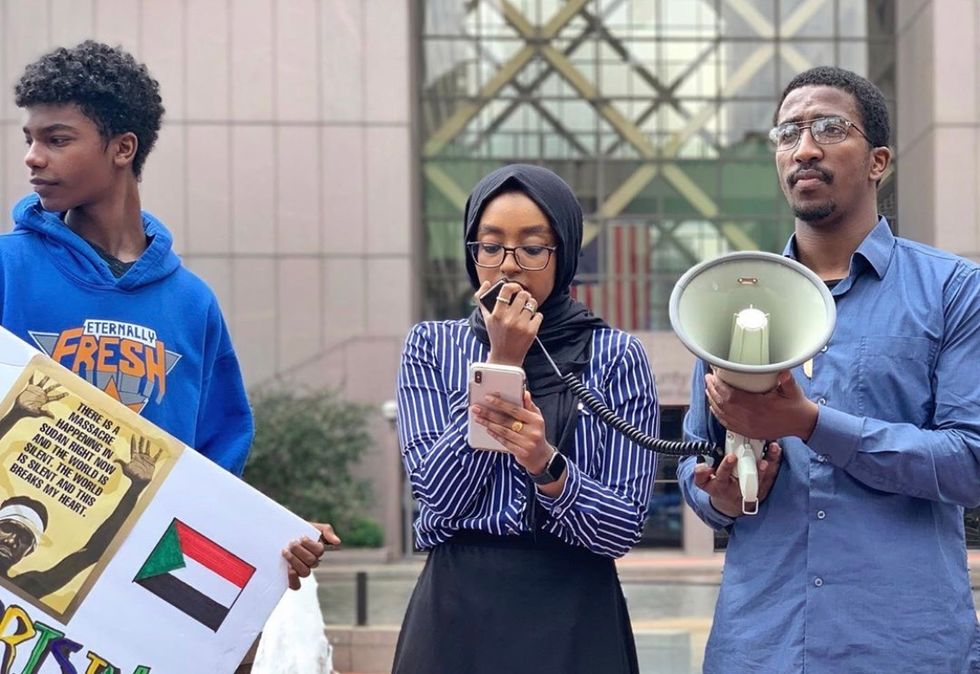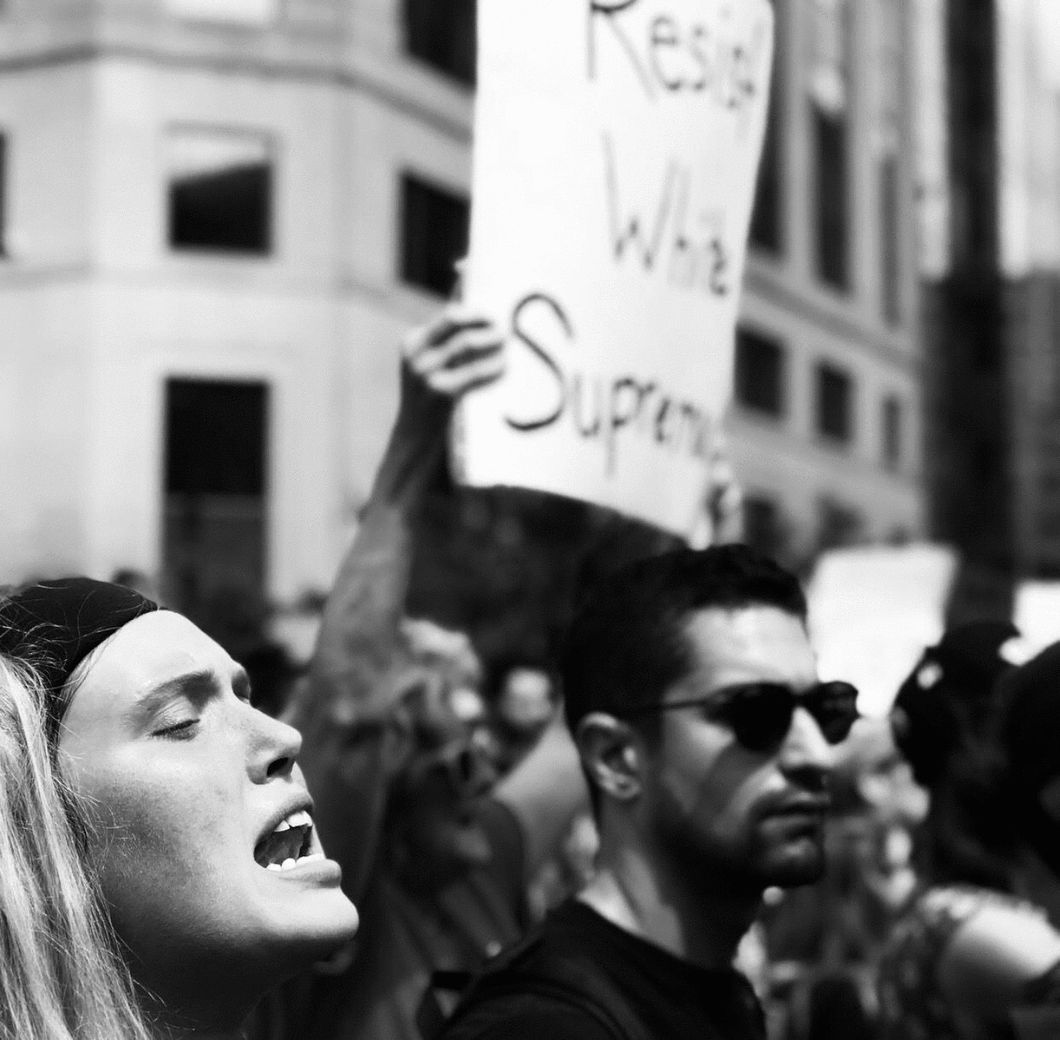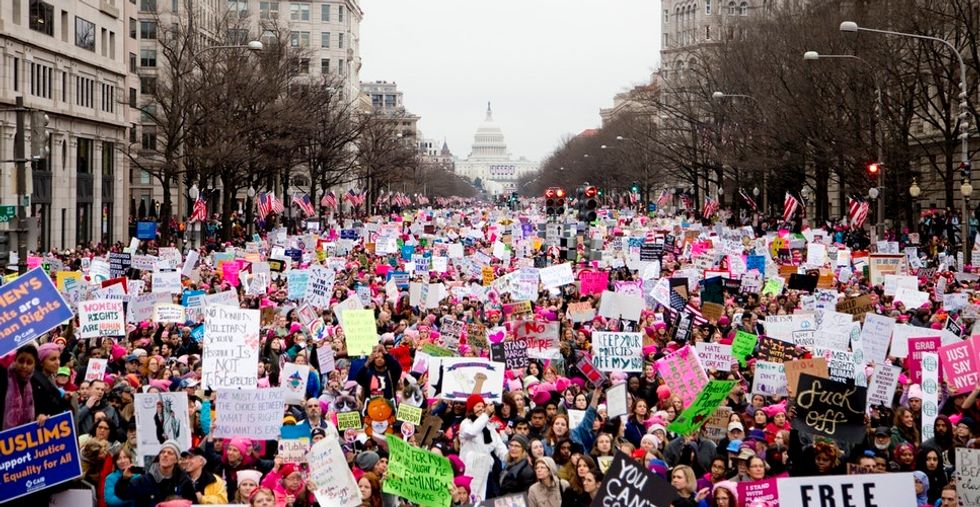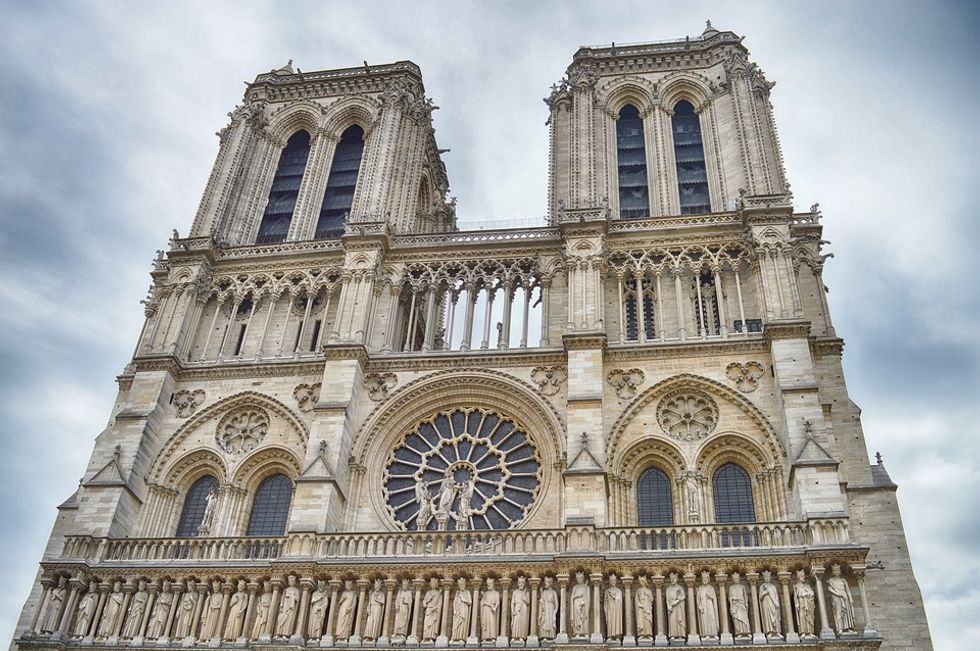Enough About Celebrity Drama, There Is A Humanitarian Crisis In Sudan
In a world driven by social media, a nation in need of aid tries to make their stories heard.
You may have noticed it.
Over the course of the past few days, across different social media platforms, a silent change is speaking volumes. Profile pictures, from Instagram to Twitter, are turning a particular shade of blue, replacing the cheery selfies of a privileged world. First one, then another, then another. Typically followed by links to posts and articles in stories, this change is not the result of some kind of glitch, nor is it an indicator that your friend's account has been hacked or deactivated. Instead, it means something much greater: it is a show of solidarity towards a nation in dire need of help, ignored by Western media and attacked by their own military defenders.
The people of Sudan have been suffering from unspeakable violence and bloodshed for months, but their tragic stories are only now gaining momentum, amidst the consistent bloodshed and horror. They tell of attacks and assaults, kidnappings and rapes, bodies being dumped in rivers and other despicable tragedies. They are crying out to the world for help, using the only efficient means to rally the people of the world to their cause--social media--when the media and news outlets have the nation under a blackout.
In the world we live in today, some people's first response may be to question the validity of these stories. Are they true? Are they hyperbolized? Why should we care?
According to a report done by CNN, the circumstances surrounding the events in Sudan are indeed true. After the fall of a vastly-disliked political leader, talks intended to give power back to the Sudanese people fell through, resulting in protests by the people and inherently a military response. That is the extent of Western media's response on the matter, but the voices of the people inside the nation affected cannot be ignored. Whether one believes in the validity or not, those with the ability to validate such stories and offer aid to those in times of crisis have the responsibility to do so.
But it's easy to feel helpless from worlds away, desperate to help but unsure how to do so. Especially given the tragedies sprouting up from around the world like symptoms of an incurable disease, it can be easy to become desensitized towards crises such as the one in Sudan. It can be all too simple to think of your own backyard, your own corner of the world, and remain sheltered inside it, a million miles away. Someone will do something, they say.
But that someone can be you.
While changing one's profile picture to the signature blue of the social media movement might not give the nation peace overnight, it will ensure the awareness of the crisis to the world.
It's the most common step, and for good reason: all it takes is finding the original post on Instagram, and swapping it in for your profile picture. Not only does it raise awareness towards the crisis, but when masses of people all over the world begin taking part in this simple sign of solidarity, it makes it harder for those instigating the violence in Sudan to get away from the global spotlight.
Signing a petition or donating funds to the people of Sudan can make a small, tangible difference from across the vast globe. Given the momentum the movement has picked up over the past few days, there are a variety of places one can sign or donate. Some places one can donate for aid can be found on GoFundMe, Save The Children, and UNICEF. Petitions to sign can be found on Change.org. All it takes is a few moments. More places to donate and sign petitions can be found on CNN and Bustle.
Sending a message to your representatives in government urging them to do something about the crisis can also ensure a response from nations able to offer aid. Depending on where you live, all it may take to inform your government representative of an issue you feel strongly about is a phone call, email, or another type of missive that will go the distance. It is the sole function of those in government to be servants to the public and respond to the needs of their constituents. When it comes to international humanitarian crises, letting your representative know that an issue demands attention may just bring the people of Sudan one day closer to peace.
The people of Sudan are only one example of dire humanitarian crises that demand the attention and focus of the world. In Yemen, people are suffering from famine. In the United States, gun violence and public health are sweeping the nation. The globe itself is attempting to reverse the effects of climate change before its too late. All of these issues may be overwhelming, but what is absolutely vital to remember is that one cannot see change faster than bringing about change oneself.
It is not impossible to change the world, to help people in need, to remember that there is a world beyond your small sleepy suburb or bustling big city and it is full of people. People who need help in times of crisis, who need safety from violent regimes, who need medical aid and a voice to be heard in a society so overrun by who can make the most noise. These people may not be your neighbors or classmates, but they are people all the same and while our modern day and age are full of tragic news delivered to us in seconds, it is also full of ways to help, blossoming across the Internet just as fast.
We can't all be world leaders, drafting legislation or deploying relief forces with one signature, but we are all world citizens, able to see and hear what is happening and find ways to help. The comfort of our own homes may help us forget those in need, but you do not need to leave it to make the world a safer, better, more peaceful place.


























